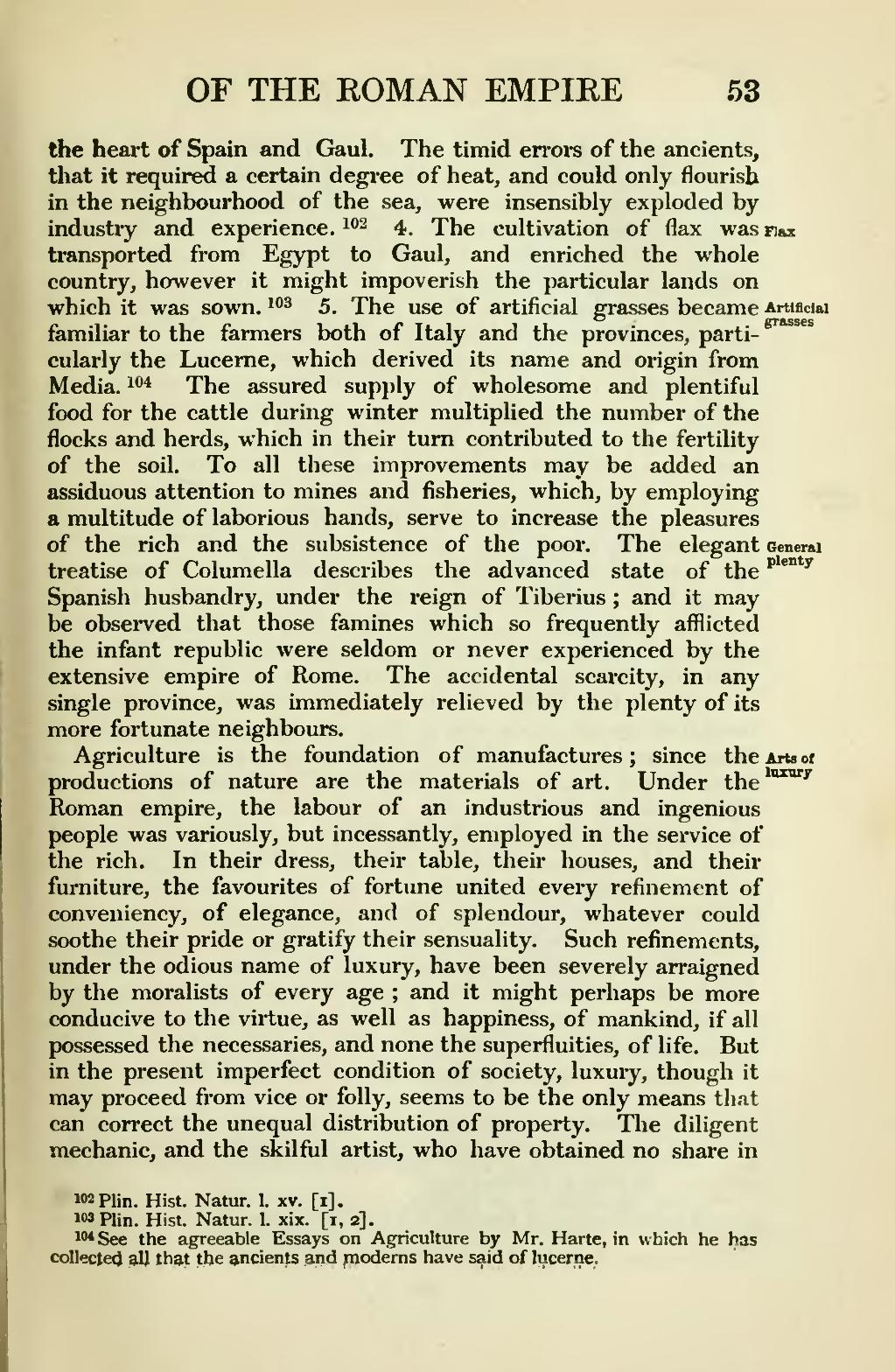the heart of Spain and Gaul. The timid errors of the ancients, that it required a certain degree of heat, and could only flourish in the neighbourhood of the sea, were insensibly exploded by industry and experience.[1] Flax. 4. The cultivation of flax was riax transported from Egypt to Gaul, and enriched the whole country, however it might impoverish the particular lands on which it was sown.[2] Artificial grasses 5. The use of artificial grasses became familiar to the farmers both of Italy and the provinces, particularly the Lucerne, which derived its name and origin from Media.[3] The assured supply of wholesome and plentiful food for the cattle during winter multiplied the number of the flocks and herds, which in their turn contributed to the fertility of the soil. To all these improvements may be added an assiduous attention to mines and fisheries, which, by employing a multitude of laborious hands, serve to increase the pleasures of the rich and the subsistence of the poor. General plenty The elegant treatise of Columella describes the advanced state of the Spanish husbandry, under the reign of Tiberius; and it may be observed that those famines which so frequently afflicted the infant republic were seldom or never experienced by the extensive empire of Rome. The accidental scarcity, in any single province, was immediately relieved by the plenty of its more fortunate neighbours.
Arts of luxury Agriculture is the foundation of manufactures; since the productions of nature are the materials of art. Under the Roman empire, the labour of an industrious and ingenious people was variously, but incessantly, employed in the service of the rich. In their dress, their table, their houses, and their furniture, the favourites of fortune united every refinement of conveniency, of elegance, and of splendour, whatever could soothe their pride or gratify their sensuality. Such refinements, under the odious name of luxury, have been severely arraigned by the moralists of every age; and it might perhaps be more conducive to the virtue, as well as happiness, of mankind, if all possessed the necessaries, and none the superfluities, of life. But in the present imperfect condition of society, luxury, though it may proceed from vice or folly, seems to be the only means that can correct the unequal distribution of property. The diligent mechanic, and the skilful artist, who have obtained no share in- ↑ Plin. Hist. Natur. l. xv. [1].
- ↑ Plin. Hist. Natur. l. xix. [1, 2].
- ↑ See the agreeable Essays on Agriculture by Mr. Harte, in which he has collected all that the ancients and moderns have said of lucerne.
